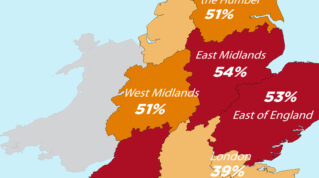Governments often over-estimate what they can achieve in the short term and underestimate what they can achieve in the long term. In education, that can mean an attraction to short-term, eye-catching policies directed at visible changes in practice. This kind of policy makes good headlines, but it creates a lot of work for teachers and in the end achieves little.
Meanwhile, systemic issues which affect everything we do attract little policy attention, perhaps because they are less visible and slower to address. Yet making sure that we all work in a functional system should be government’s first priority.
Defining accountability, regulation, and the roles and responsibilities of schools, trusts and local authorities appears a long way from teaching children. But a system in which everyone is clear about their role and responsibilities and appropriately accountable is one in which time and energy are not wasted and everyone can give of their best. Without these, a system will be less than the sum of its parts.
So the government is right in its white paper to set about creating a more rational school system. We should not carry on with two parallel systems – one maintained, one academy-based – when it makes the lives of many working to improve things for children unnecessarily difficult.
The government is also right that the only available single system now is one based fully on academy trusts. Even those who would prefer a maintained school system recognise there is no realistic way back to that.
Equally, though, the white paper recognises that place does matter. Local authorities have an important role to play. When all schools are part of trusts, there can be no objection to local authorities having the powers they need to carry out the duties they do and should have.
Government is right to seek consensus built on evidence
The government also rightly wants sharper accountability for trust performance and sharper consequences for failure. Schools and trusts should have meaningful independence from the state with the extent and burden of process regulation reduced – but weak provision must be tackled.
And government is right to seek consensus built on evidence. The devil is in the detail and a great deal of that detail will be decided through the forthcoming review of regulation. But it is confident, not weak government to consult and seek the insight of schools, trusts, local authorities, churches and others in order to build a system which can stand the test of time.
In January 1944, Sir Geoffrey Shakespeare congratulated RA Butler on the ‘extremely skilful and diplomatic way in which he has carried out his negotiations and framed this comprehensive measure, which gathers up the dreams of all educational reformists.’ Nadhim Zahawi might reasonably aim to achieve the same thing – and an equally enduring piece of legislation – in framing what will become the 2023 Education Act.
There is a narrow and treacherous path to doing so. It will require ministers to reach beyond their natural constituency and even across the political divide, to face up to the toughest issues and let evidence rather than ideology be their guide.
One white paper could not get them there in a single bound. But with the wrong white paper, the DfE could have failed to even get off the mark. That is not the case. They have cleared the undergrowth, found the start of the narrow path and taken the first steps along it.
It’s unglamorous work, perhaps. But it’s absolutely necessary to seek to create a system within which all schools and teachers can flourish.
So I welcome this white paper with at least two and a half cheers. Which is a good one and a half cheers more than I would have given government for anything 12 months ago.
It is not impossible that we will look back at this white paper from the vantage point of future decades as the founding moment of a new settlement. A moment when government did not underestimate its ability to shape the long term.
















Your thoughts